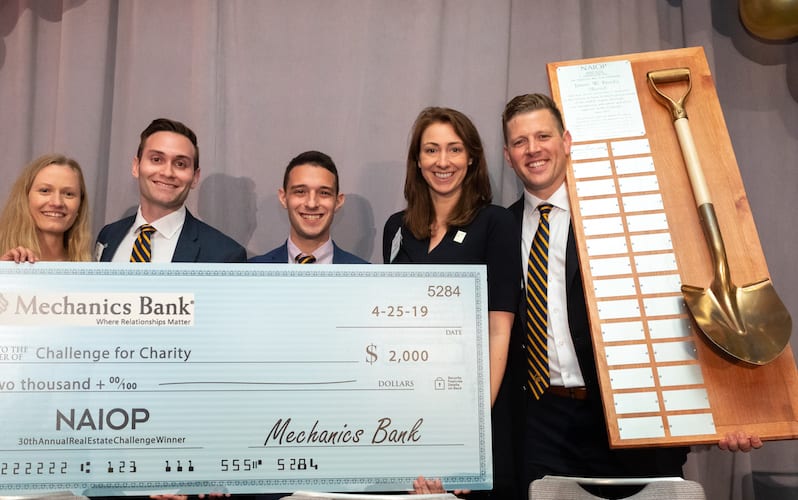
The Team: Golden Bear Real Estate: Bianca Doerschlag, M.Arch. 19; Matt Tortorello, MBA 20; David Eisenman, MBA 20; Brynn McKiernan, MRED+D 19; Matthew Anderson, EWMBA 19.
The Win: First Place in the NAIOP San Francisco Bay Area (SFBA) Real Estate Challenge, April 30. The friendly real estate competition between Berkeley and Stanford just celebrated its 30th year, with Haas taking home the coveted James W. Brecht Memorial Golden Shovel. The team’s $2,000 prize is donated to the nonprofit Challenge for Charity.
The Challenge: The City of San Jose challenged students to create a plan for an undeveloped 159-acre site located adjacent to Highway 237 and Zanker Road in North San Jose. The two teams spent 10 weeks researching a solution to the challenge and pitched a jury of six executives from the banking, real estate development, property management, and public utilities sectors.
The Pitch: The team proposed “Zanker Yards.” Since San Jose’s demand for office space is low, the team dedicated half of the development—3 million square feet—to industrial space for businesses like food distribution, manufacturing, water technology, (the development site is located near a water treatment plant) and medical devices. The remaining half would be divided into 2.7 million square feet of office and retail space, a hotel, and 40 acres of open space.
The Clincher: Breaking with the U.S. tradition of sprawling, single-story industrial buildings, the Berkeley team proposed an architecturally innovative, multi-story design that drew inspiration from the world’s densest cities. The development would also accommodate nearly 15,000 employees in the initial phase and have flexible zoning that could eventually double that number.
The Haas Factor: The team credited Haas’ overall strength in real estate. Competition adviser Bill Falik—reprising his role from last year—and the faculty at the Fisher Center for Real Estate and Urban Economics worked to validate and challenge the team’s assumptions. They also helped connect the team to developers, property managers, prospective tenants and financiers. Leveraging these networks, the team conducted more than 60 interviews to hone their ideas and complete due diligence. In addition, this year’s team received coaching and moral support from last year’s winners, which helped the team stay inspired, refine their process, and benchmark progress.